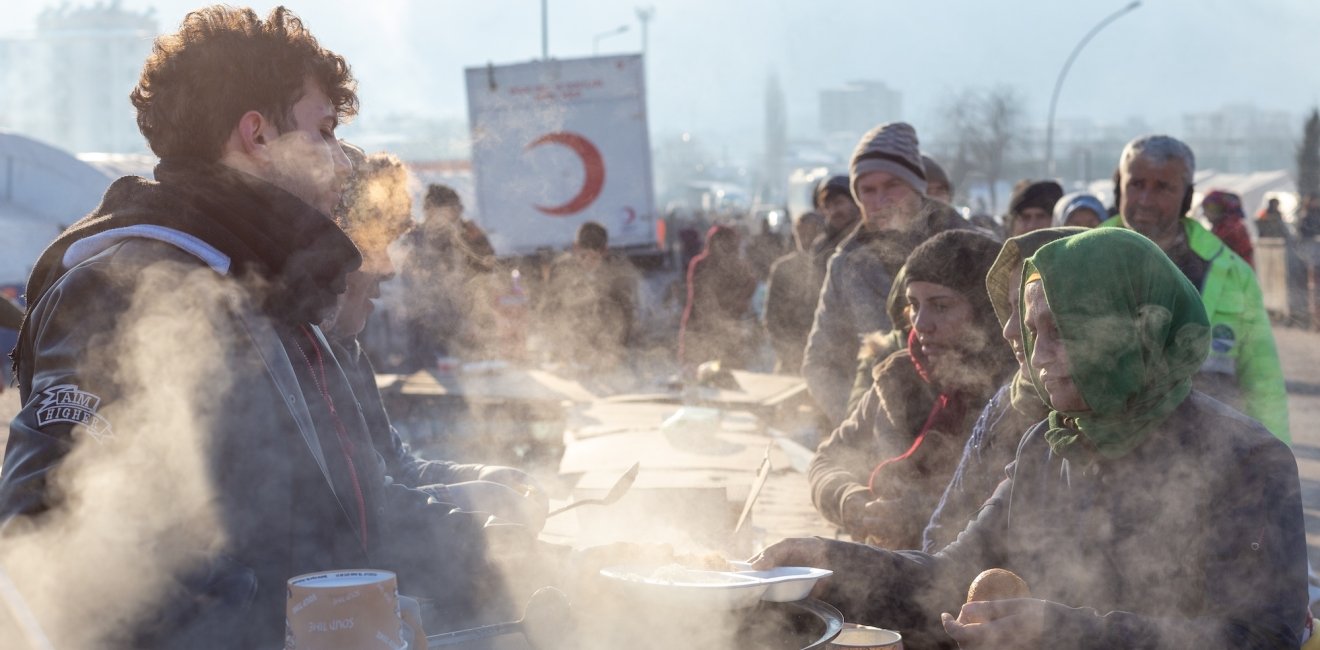
A blog of the Middle East Women's Initiative
The earthquake not only physically displaced individuals but also left deep emotional scars. Many survivors are grappling with trauma and the grief of losing loved ones.
As the world prepares to commemorate World Refugee Day on June 20, 2023, it is crucial to remember the ongoing humanitarian and displacement crises continue to affect people in Turkey and Syria. As a social impact leader actively involved in the response efforts and a native of Aleppo, Syria, I aim to shed light on the situation on the ground more than 100 days after the devastating earthquake struck our communities.
An urgent humanitarian crisis
Media coverage initially brought critical attention to the immense destruction and displacement caused by the earthquake. Since then, however, it is disheartening to witness the decline in attention and subsequent decrease in support and resources for the affected populations. As of March 15, more than 103,000 internally displaced people (IDPs) were recorded in northwest Syria since the first earthquake struck on February 6. The International Organization for Migration reports that 3 million people have been displaced by the earthquakes in Turkey. Half of those from the Syrian refugee population.
Beyond the initial rescue and relief efforts, survivors of the earthquake still face pressing humanitarian needs. The destruction of homes, infrastructure, and basic services has resulted in a severe lack of shelter, clean water, sanitation facilities, and access to healthcare. Shockingly, recent assessments indicate that approximately 65 percent of the affected population lacks access to clean water and sanitation, leaving them vulnerable to waterborne diseases. Urgent assistance is required to provide adequate housing, clean water, and healthcare facilities to ensure their well-being and prevent further suffering.
Further, the earthquake not only physically displaced individuals but also left deep emotional scars. Many survivors are grappling with trauma and the grief of losing loved ones. Reports indicate that more than 40 percent of the affected population is experiencing symptoms of post-traumatic stress disorder (PTSD) and depression. Prioritizing mental health services and establishing support systems is critical. Local organizations have stepped up, offering vital trauma counseling, psychosocial support, and community-based resilience programs to aid in the recovery and rebuilding of lives.
What’s more, the earthquake's impact on education and livelihoods has been devastating. Over 200 schools and educational facilities were damaged or destroyed, depriving thousands of children of their right to education. As a result, tens of thousands of children are currently out of school, risking their future prospects. Rebuilding educational infrastructure and ensuring access to quality education for all affected children is essential. Tireless work is being done to establish temporary learning spaces, provide educational materials, and offer innovative solutions to bridge the education gap. Supporting income-generating initiatives and vocational training programs will help affected communities regain self-sufficiency and rebuild their lives.
Empowering the grassroots
Throughout this challenging period, grassroots and local organizations have played a pivotal role in the response efforts. Their resilience, resourcefulness, and deep understanding of the local context make them indispensable partners in shaping effective and sustainable solutions. Driven by community leaders and volunteers, they have been at the forefront of providing emergency aid, distributing essential supplies, and organizing community-driven reconstruction projects. Recognizing the value of their work, it is crucial for US policymakers and the international community to provide financial and technical support, empower these grassroots and local organizations, and engage them as equal partners in the recovery and reconstruction efforts.
As World Refugee Day passes, we must support those impacted through local organizations. We can foster sustainable solutions and amplify their impact in rebuilding lives and communities. Commitments to aid and support, both in immediate relief efforts and in addressing underlying vulnerabilities must be renewed. Together, we can create a brighter and more resilient future for all affected by the earthquake. The time to act is now.
Author


Middle East Program
The Wilson Center’s Middle East Program serves as a crucial resource for the policymaking community and beyond, providing analyses and research that helps inform US foreign policymaking, stimulates public debate, and expands knowledge about issues in the wider Middle East and North Africa (MENA) region. Read more


Middle East Women's Initiative
The Middle East Women's Initiative (MEWI) promotes the empowerment of women in the region through an open and inclusive dialogue with women leaders from the Middle East and continuous research. Read more

Explore More in Enheduanna
Browse Enheduanna
Women are the Catalysts for Change in Lebanon

How Education Can Empower Young Women in MENA


